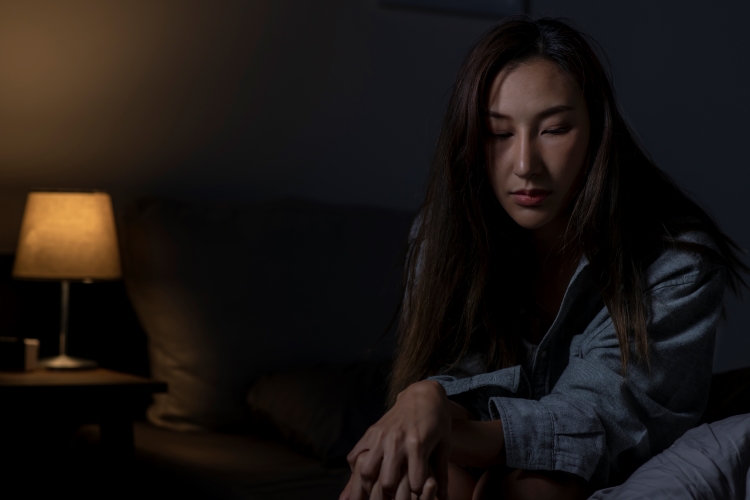How Domestic Abuse Impacts Child Custody Decisions
 When parents separate and cannot agree on a custody arrangement, the court must decide what is in the best interest of the child. However, claims of domestic abuse greatly complicate these decisions, adding a layer of urgency that puts parent and child alike in danger. California courts place the safety and best interests of the child first, and that means taking steps to protect them from domestic violence—whether or not it directly targets them.
When parents separate and cannot agree on a custody arrangement, the court must decide what is in the best interest of the child. However, claims of domestic abuse greatly complicate these decisions, adding a layer of urgency that puts parent and child alike in danger. California courts place the safety and best interests of the child first, and that means taking steps to protect them from domestic violence—whether or not it directly targets them.
At Ewaniszyk Law Firm, we understand how complex and emotional these discussions can be. When time with your child is at stake or you’re being ordered to see your abuser every week for custody handoffs, it’s hard to think about anything else. At Ewaniszyk Law Firm, many of our family law cases are handled by child custody attorney Diana L. Spidall. By focusing on what is best for the child at the heart of a dispute, Ms. Spidall strives to help clients come to fair and thoughtful agreements. For more help with your case, call our child custody law firm in Victorville at 760-245-7310.
How the Law Defines Domestic Abuse
Domestic abuse is defined in California Code 6203, and it is considerably more extensive than the definitions used in some other states. An act may be considered abuse if it involves intentionally or recklessly causing (or even just attempting to cause) bodily injury. Sexual assault, making a person legitimately fear that they are in danger, or engaging in behavior further outlined in 6320. This section of the law goes one step further to include stalking, threatening, harassing, battering, or disturbing the peace for another person. One interesting aspect of California law is that it specifically includes coercive control, a relatively new addition that covers attempts to interfere with a person’s liberty.
The Child’s Best Interests
Any custody dispute puts the child’s best interests first. Judges consider a wide range of factors when deciding what is best for a child, including the child’s health, the safety of the child with each parent, the child’s existing relationship with each parent, and each parent’s ability to meet the child’s current developmental needs.
When one party accuses the other of domestic abuse, that can significantly change the outcome of custody cases. The presence of domestic abuse, whether or not it targets the child, may determine how a judge decides to award custody. Obviously, a child is in direct danger if they are the target of abuse. However, even if the other parent is the sole target, that can still harm the child. Exposure to violence can cause significant psychological harm to a child, which is why child custody attorneys often push for limited contact with abusive parents.
Presumption Against Custody for an Abusive Parent
Another important state law that comes into play in these cases is Family Code 3044. If someone seeking custody has committed domestic violence within the past five years against the other party seeking custody, the child, or the child’s siblings, there is a presumption that an award of sole or joint custody is detrimental to the child. Basically, if someone commits domestic abuse, the court presumes that the person in question should not have sole or joint custody of the child.
Note that this is a rebuttable presumption, which means that it’s not written in stone. Even if someone has committed domestic violence, they may still be able to get custody if they can overcome that presumption. That may involve completing a batterer’s treatment program, completing alcohol or drug abuse counseling, or taking a parenting class.
Types of Evidence That May Come Into Play
If domestic violence is a factor in your custody case, having evidence is a crucial part of your case—that’s why we recommend talking to a child custody lawyer. The court will not take action based solely on one party’s word; they need evidence supporting your claim. Evidence you may use includes police reports, restraining orders, medical records documenting your injuries, digital evidence, testimony from eyewitnesses, and expert evaluations.
If the court does recognize that domestic abuse has occurred, the perpetrator may have limited or supervised visitation, a no-contact order, or an order to complete a batterer’s treatment program or anger management course. Everything depends on the specifics of your case.
Explore Your Options With Our Child Custody Law Firm
At Ewaniszyk Law Firm, we know how much courage it takes to go up against your abuser for custody—and how much fear you still have throughout the process. Our team of child custody lawyers is here to help you protect your rights. Call us at 760-245-7310 or contact us online to discuss your options now.

Mr. Ewaniszyk was first admitted to practice law in 1982 and he lived and raised his family in the High Desert since 1986. He has successfully represented hundreds of clients each year suffering from serious and catastrophic personal injuries, those accused of criminal offenses, people going through divorce and family law matters, and families facing bankruptcy. Mr. Ewaniszyk has tried many cases in both Federal and State Courts during his extensive career and previously served for five years as the City Attorney for the City of Adelanto. Learn more here.
